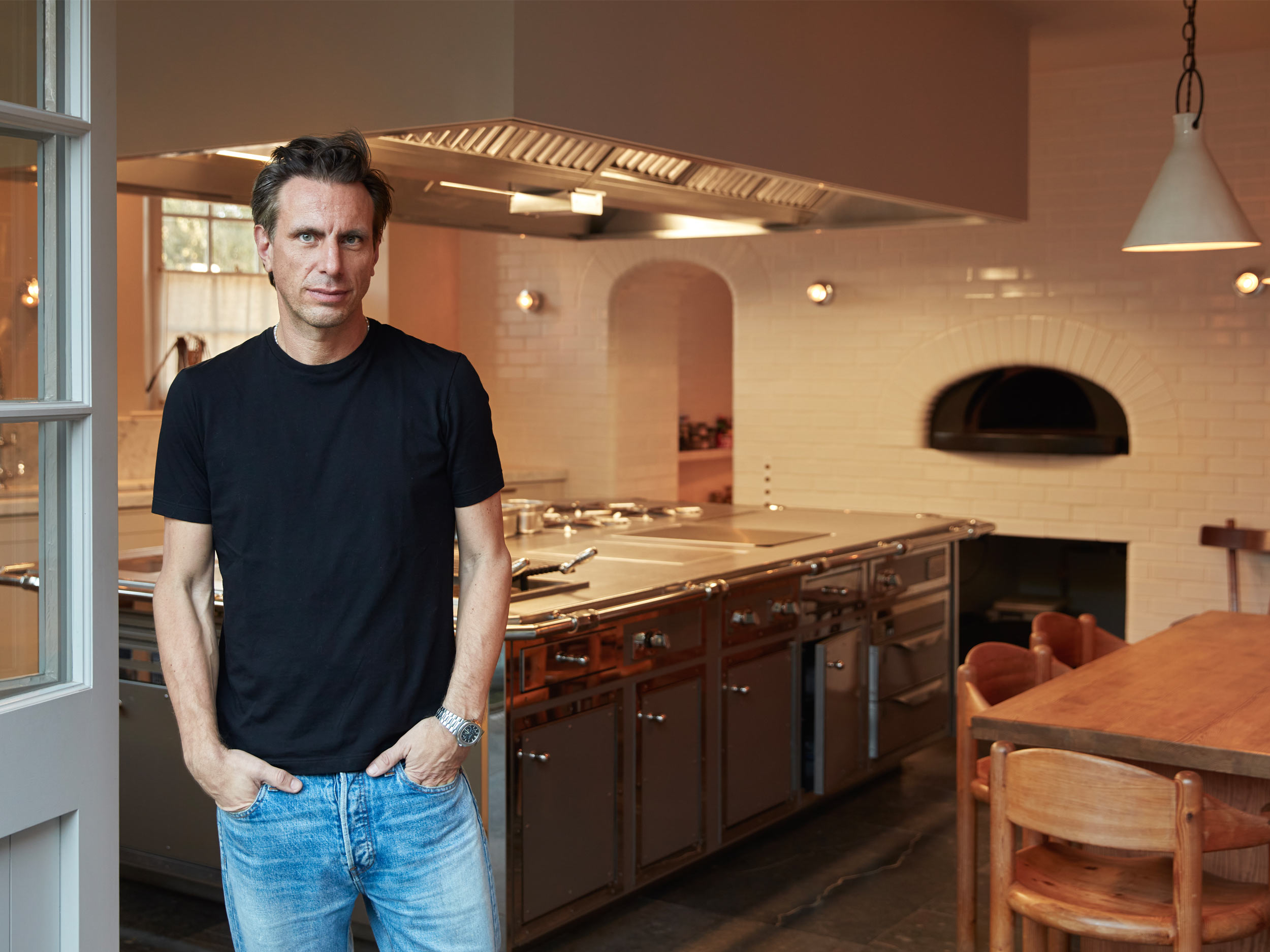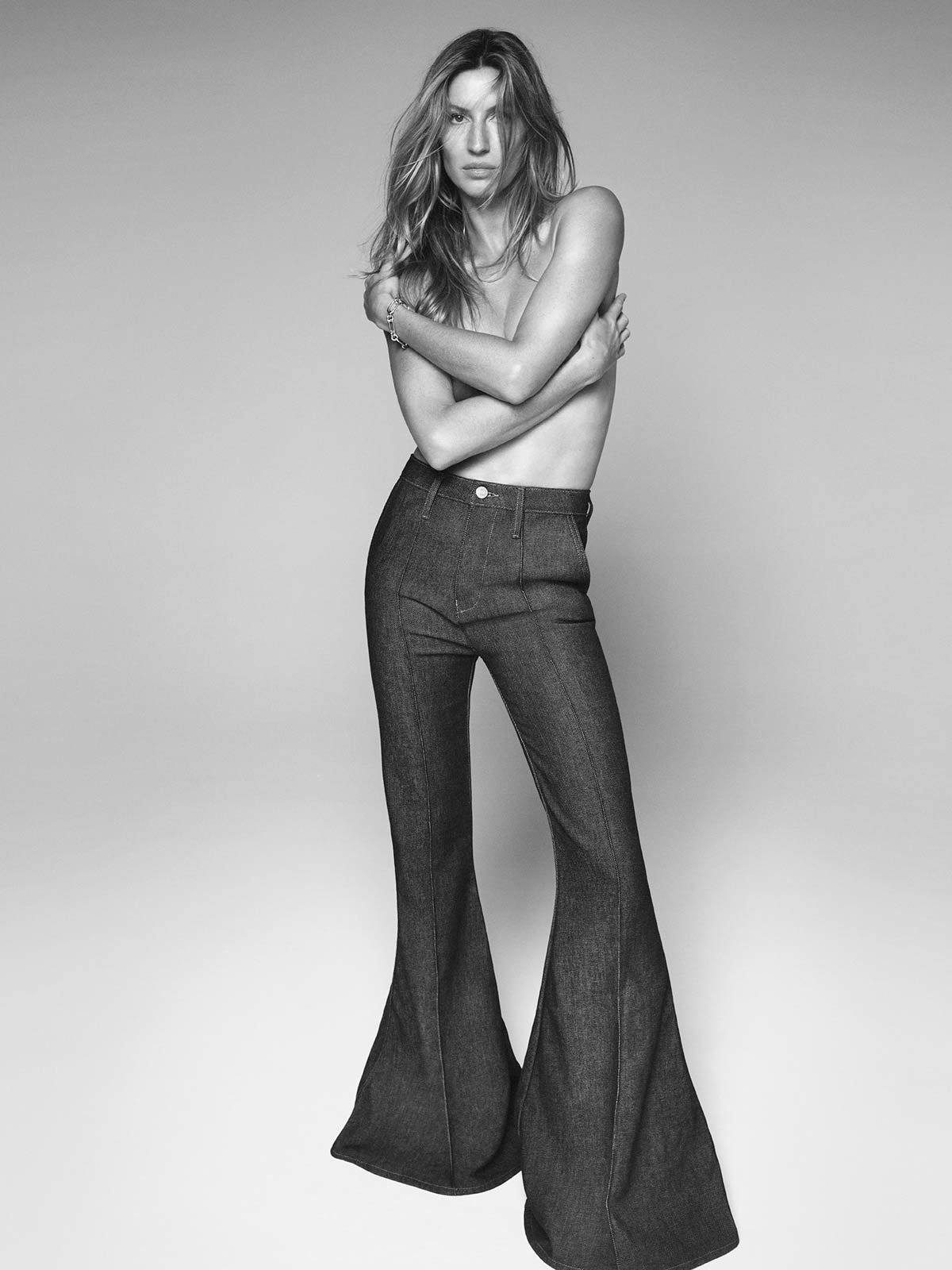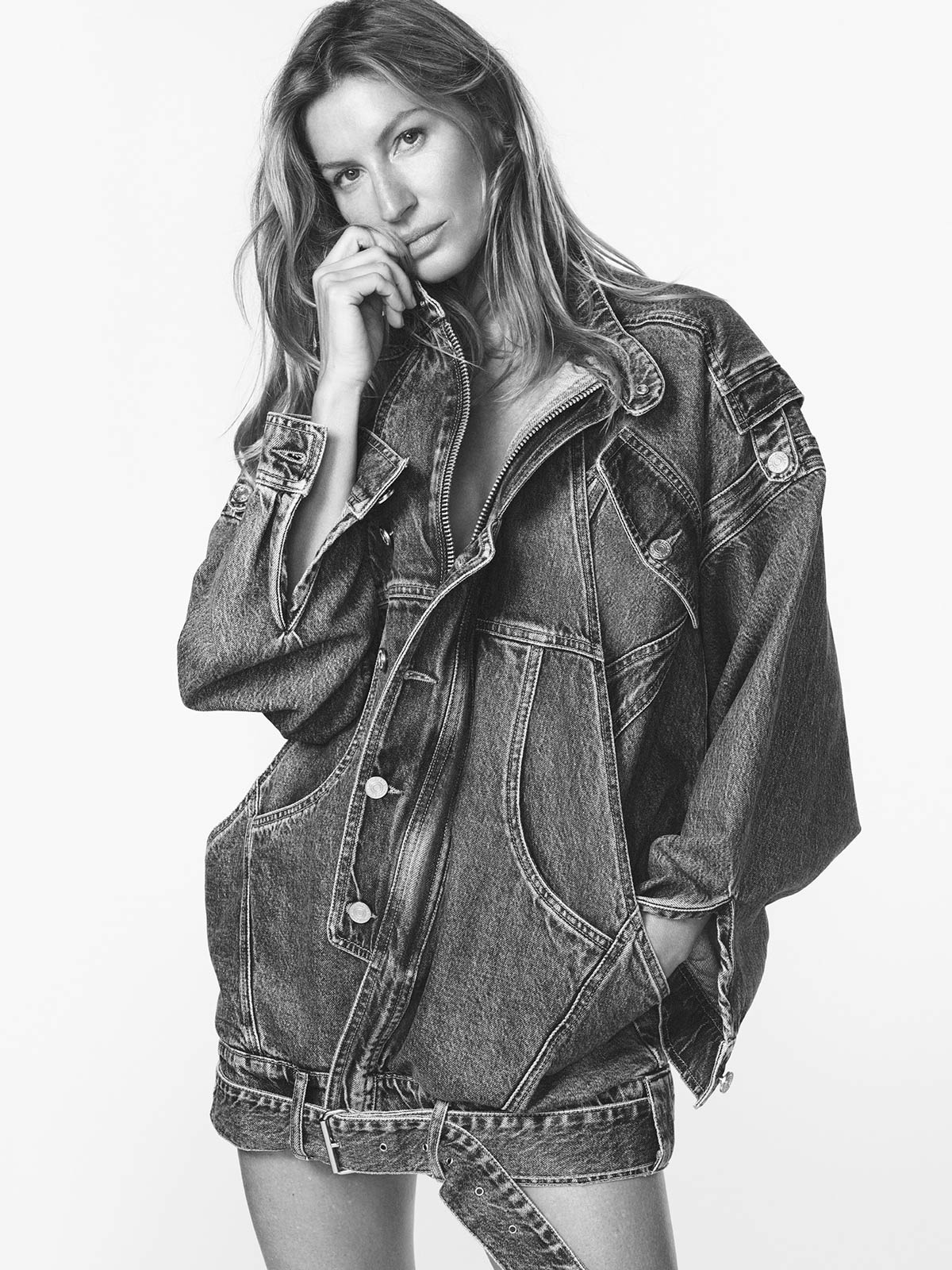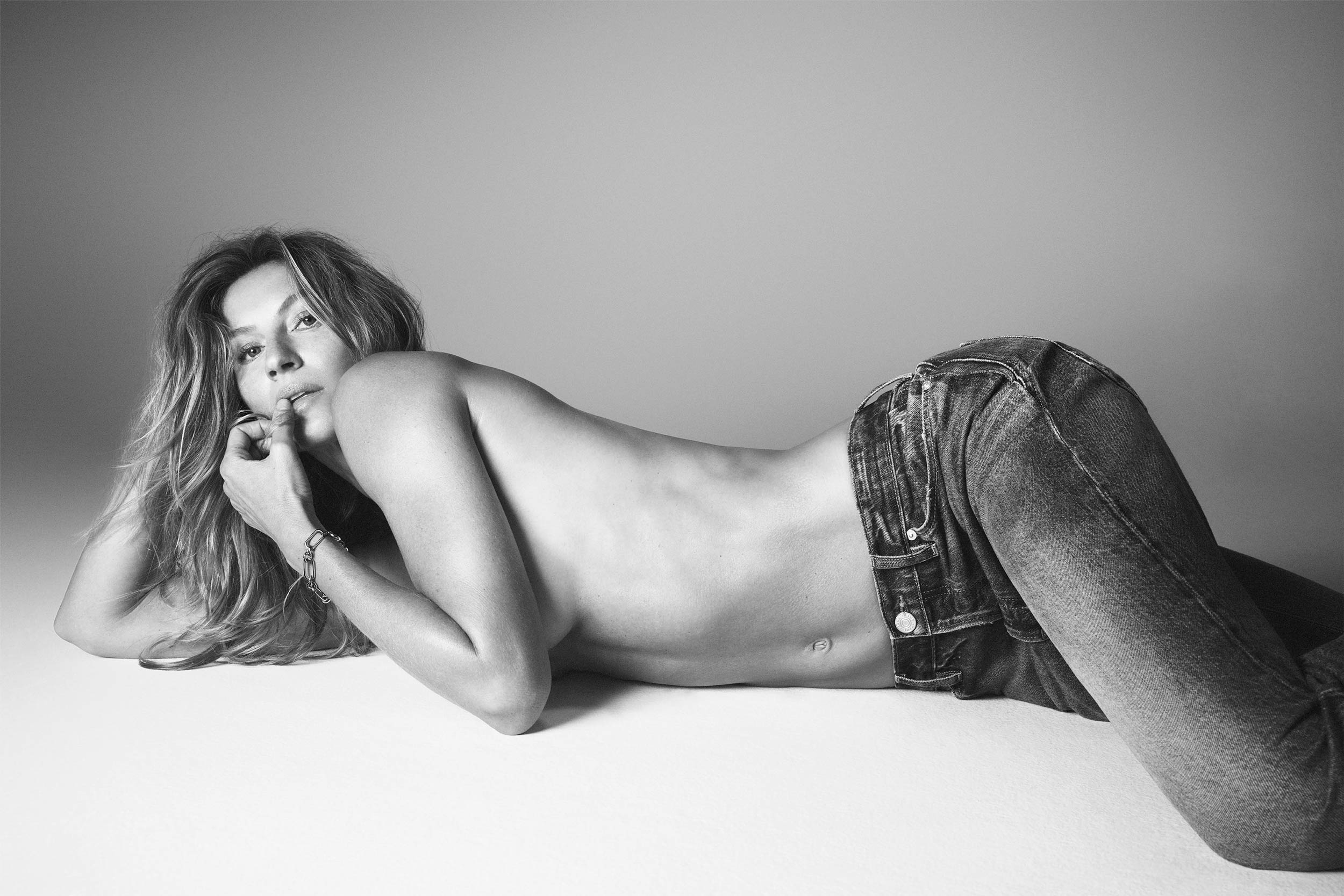Co-founder and creative director Erik Torstensson joined Document’s Nick Vogelson to discuss his brand’s 11th year, and the power in remaining curious
A piece of furniture and a pair of jeans are more alike than they are different—at least according to Erik Torstensson, co-founder and creative director of Frame. The brand got its start with one product, selected sort of at random: the perfect mid-wash skinny jeans, gifted to models and industry connections during Torstensson’s time at the helm of creative agency Saturday Group. One pair spawned another, and another—and 11 years later, Frame has built its empire.
More than Frame sells denim inspired by the chicest women around town (Karlie Kloss’s struggle to find jeans long enough for her height launched the brand’s Forever Karlie style) the label sells inspiration. Torstensson draws heavily from LA’s landscape and heritage, from the beach to the city, to its soft teak interiors, to the powerful, leggy women strolling down its boulevards, as seen in a new campaign featuring none other than Gisele Bündchen.
Document sat down with Torstensson, speaking on the ins and outs of marketing a brand from a place of adoration for the women he dresses, and the power of remaining curious.
Nick Vogelson: Frame is about to be in its 11th year, and it started with a single pair of trousers. Did you envision that you would be building on such an extensive ready-to-wear collection? Was that always on the horizon?
Erik Torstensson: Frame, as an idea, was mainly an expression of a certain woman—a certain vibe and aesthetic. It ended up being denim because I was in LA a lot and I knew someone who could make jeans. It could have just as well been a cashmere sweater, or a piece of furniture; I think there was the idea of a [Frame] universe from the beginning, that you could apply to many different things.
Nick: How much of yourself do you see in Frame?
Erik: That’s a good question. I think it is a lot of who I am—or, at least, I’m trying to [shape] it that way. I always try to produce things that I find desirable and attractive. Not saying we always succeed in that—because sometimes, when you give birth to something, the market can take over. That’s why I think it’s especially important now to try to create something that you yourself want to be a part of. You can’t fake that.
Nick: Talk to me about the store concept.
Erik: We did a flagship in Marylebone in London, one in Madison, one in Georgetown, and another in Los Angeles. I’m obsessed with designing furniture and spaces and interiors. I believe in punching above our weight: We are not a luxury brand, and we won’t try to be. I think that’s a very closed world. We try to give as much of an elevated experience as we possibly can in our stores, while representing what we are and where we come from. That’s gonna sound weird from a Swedish person—having a brand that was founded in LA, while living in London. But people come to realize their dreams. A European take on Los Angeles is very much what Frame is.
Nick: Since you’ve launched Frame, it has always felt as much about the cultural touchpoints as it is about product and image. As you expand the brand, how do you expand those touchpoints?
Erik: I think we had a natural beginning, because we had been in the industry for a long time before our first rocket launcher—when Frame became the supermodel jeans, effectively. All of the models in the industry really embraced us, but that wasn’t because we paid people lots of money, or because there was a marketing strategy; it was our friends wearing the stuff. Ten years ago at a Vogue dinner in Paris, Karlie [Kloss] said to me, ‘I can’t wear your jeans. I’m too tall.’ And I said, ‘Why don’t we make some jeans for you? There are a lot of tall girls in the industry.’
I think we’re a brand born out of the industry, and we have been the whole time. It’s my job to think about how to engage with the new generation.
Nick: What do you see as the next generation of Frame?
Erik: I want to align with a new generation and an old generation through women of influence, from artists to photographers to chefs—anyone who’s doing something interesting. That’s why we picked Gisele. Even at the Paris Fashion Week dinner you were at, there was Amelia Gray, who I thought was amazing. She was new, cool, young LA. We had a conversation and she was like, ‘I’m going to be the best model I can be’—not blasé, or what you would think of when you think of a model. I was like, This will be a woman of influence. I think she should be a part of our sort of gang.
Nick: In line with talking about the next generation, I’m wondering about Frame’s next generation [in terms of] technology… What’s an interesting question about AI? Because what I don’t want to ask is, ‘How do you feel about AI?’
Erik: I think an interesting question about AI is maybe, like, How can we use it? Because I feel like I have a superpower now, under my fingertips. I don’t think it’s a threat to a lot of the things that we do—and yes, I have opinions about it, and I’m using it a lot.
You are AI, and I am AI, right? I am everything I ever saw, ever read, ever studied—that is what I used [to think]. Everything I do with AI is effectively sketching out ideas I could do before; it just took a lot longer. I have a small collection of ceramics in my house in England, and I took, like, 15 pictures of them. I can train Runway, an AI, on those specific ceramics, and then I have a mood board. Then I work back and forth, edit. This is what I have done my whole professional life: be inspired by something, make a moodboard, talk to everyone on the team or at the agency. That’s what I did when I designed the furniture we produce in the stores now.
Nick: Tell me a bit more about the expansion of Frame’s product categories. There’s a much more fully developed ready-to-wear, and I know the design team is bigger now.
Erik: Connection is a part of the general effort to elevate the brand to greatness. Companies have to grow; you have to change to survive. We’ve done well since day one, and we have the luxury of being able to control our own destiny, because we don’t have big investors. I think, in today’s world, brands that are doing well have to create community, culture, and desire. I’m not against new categories necessarily, but it’s not our job to sell a luxury handbag. It’s not our job to sell high heels. That’s a different type of status. I think we’re in the business of actually dressing women in the best possible way on a day-to-day [basis], which sounds boring—but it’s about making clothes that people actually wear.
Nick: That brings me to the Gisele [Bündchen] campaign—how’d that come about?
Erik: It has several parts to it. One is [the question of], Where do we come from? Gisele bares it all—just these denim outfits, back to square one. Then, there are the two halves of our DNA: the city and nature, the two parts of living in LA. The person who can handle it all is someone multifaceted, and I think Gisele really embodies that. She’s one of the iconic supermodels, she’s an amazing mother, she lives by her word, she’s a great businesswoman, and she’s super strong.
Nick: What’s the motivating factor for you to start something new? What was it with Frame, when you launched?
Erik: Things start brewing a little bit, because I have a short attention span: with the furniture [for the stores], with art, with sculpture—it all comes together to make Frame. Maybe we make a pair of jeans, then try something else, then try something else… What sticks is what I’m interested in, enough to stay with it for a longer period of time. Otherwise it falls away easily. If [an idea] makes me curious, it’s important to stay curious—then you can decide to use it or not.
Nick: When do you decide to move on from an idea?
Erik: It kind of sorts itself out. I heavily dislike being told, Oh, you can’t do that. You’re just in this box. I was a graphic designer, an art director, and that was fine. Then I started working at a magazine, and I figured out that the editor decides everything; I know that if I want to have a point of view, I have to be the editor. Everyone says, ‘You can’t be the editor,’ and then I go, ‘Well, I’m gonna start my own magazine. You don’t have to like what I do—that’s totally fine.’
But at least I will try, and I have an opinion. Everyone will say you can’t do it. But I think you should try to do everything you are curious about—why not?













